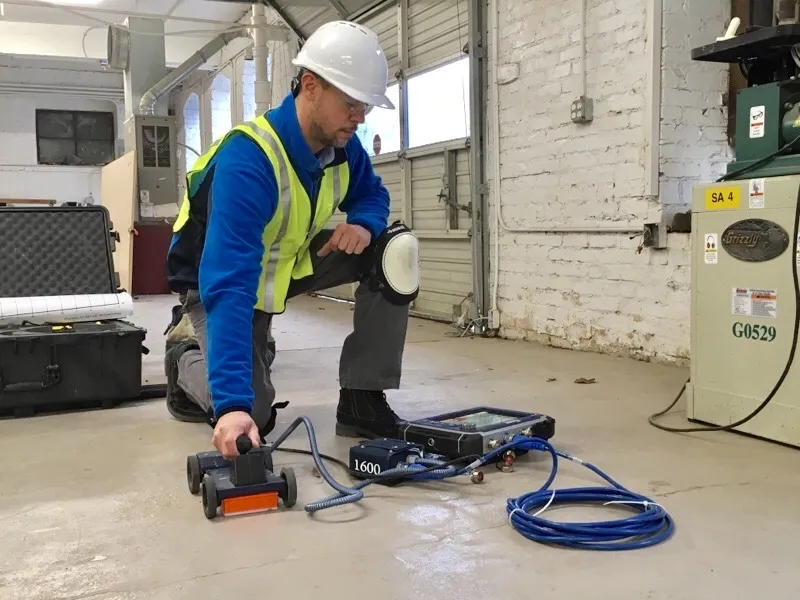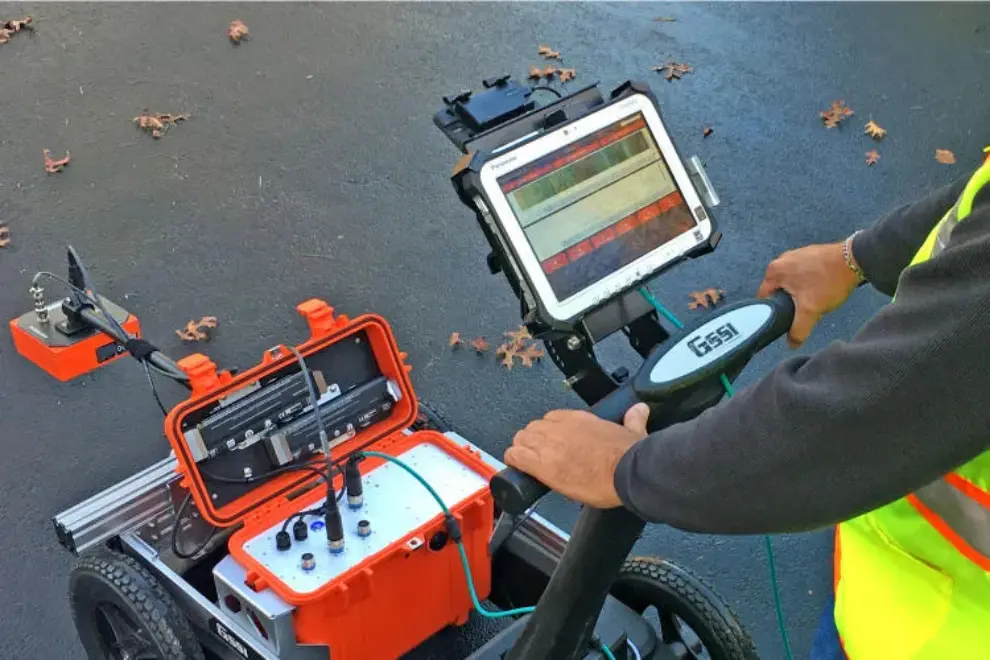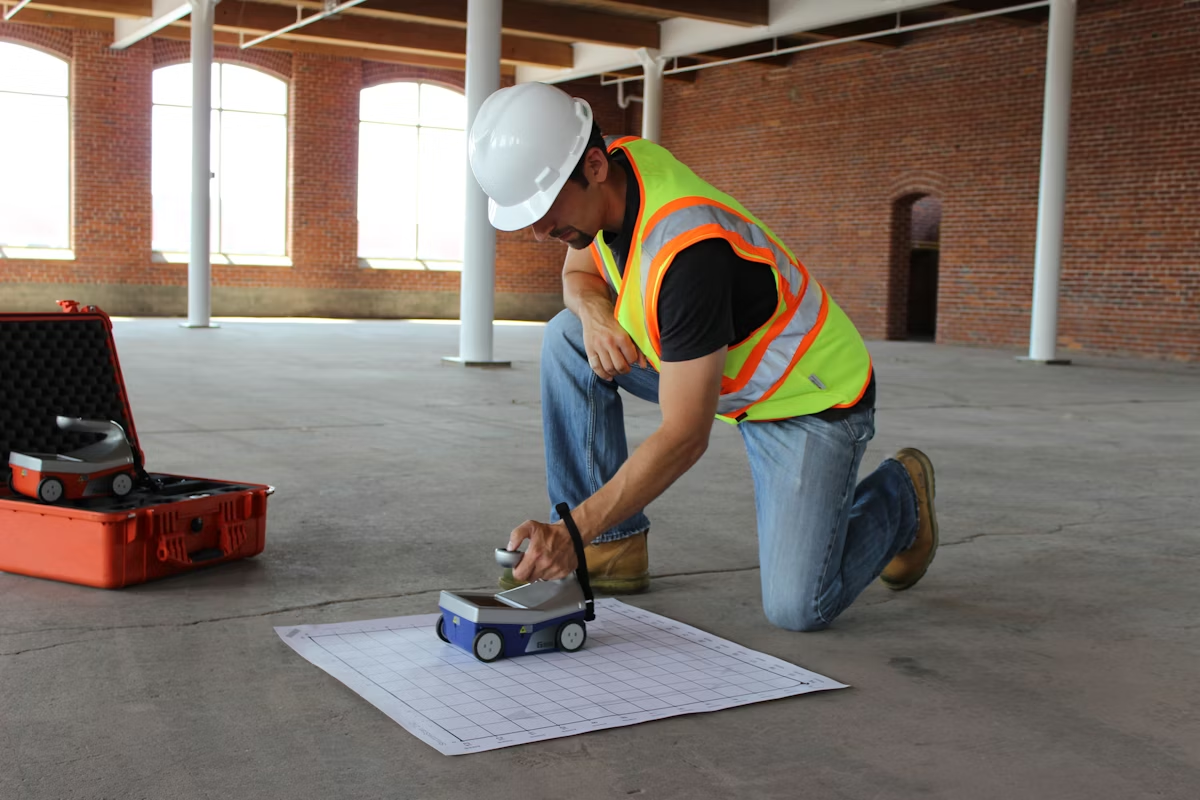Ground Penetrating Radar (GPR) is an advanced technology that uses electromagnetic waves to create detailed images of subsurface structures.
In the construction industry, GPR scanning is an invaluable tool for mapping out hidden elements beneath the surface such as pipes, cables, voids, and other potential obstructions.
By providing clear and accurate data about what lies below, GPR helps project managers, engineers, and construction firms make informed decisions, ultimately saving time, money, and reducing risk.
The Significance of Accurate Subsurface Mapping in Construction
Accurate subsurface mapping is crucial for the success of any construction project. Without precise knowledge of what lies beneath, construction teams can unintentionally damage underground utilities, compromising safety and leading to costly repairs.
Moreover, understanding the subsurface conditions ensures that foundations are built on solid ground, preventing future structural issues. Accurate subsurface information also facilitates compliance with regulations and standards, reducing the likelihood of project delays and legal complications.
Challenges and Risks Associated with Inaccurate Subsurface Information

Inaccurate or incomplete subsurface information can lead to various challenges and risks, including:
- Safety Hazards: Striking underground utilities like gas lines or electrical cables can cause severe injury or even fatalities.
- Project Delays: Unplanned encounters with subsurface obstructions often result in significant project downtime.
- Increased Costs: Repairing damaged underground utilities and addressing unforeseen subsurface conditions can inflate project budgets.
- Structural Issues: Building on unstable or unsuitable subsurface conditions can compromise the integrity of a structure, leading to long-term problems.
The Benefits of Hiring a Professional for GPR Scanning
Hiring a professional for Ground Penetrating Radar Brisbane scanning offers numerous advantages, including:
- Expertise and Experience: Professionals possess the technical knowledge, hands-on experience, and training required to operate GPR equipment efficiently and interpret the data accurately. Their deep understanding of the technology ensures that they can identify and address any anomalies or challenges that may arise during the scanning process.
- Advanced Technology: Professional GPR companies invest heavily in state-of-the-art equipment that provides high-resolution images and reliable data. This advanced technology allows for more precise detection of subsurface features, ensuring that the information gathered is both comprehensive and accurate.
- Comprehensive Reports: Professionals deliver detailed and easy-to-understand reports, which often include visual aids such as maps and diagrams. These reports help project teams make well-informed decisions by providing clear insights into the subsurface conditions. The thoroughness of these reports can be crucial in planning and executing projects effectively.
- Safety Compliance: Experienced GPR operators adhere strictly to industry safety standards, thereby reducing the risk of accidents and ensuring compliance with regulations. Their familiarity with safety protocols not only protects the workers on site but also minimises the likelihood of costly legal issues.
- Cost-Effectiveness: By identifying potential issues early, professional GPR scanning can prevent costly project delays and repairs. Early detection of subsurface anomalies allows for timely intervention and adjustments to project plans, which can save significant time and money in the long run. Additionally, the accuracy and reliability of professional GPR services reduce the chances of unforeseen complications during construction.
Tips for Choosing the Right GPR Scanning Service

Selecting the right Ground Penetrating Radar (GPR) scanning service is essential to maximise the benefits of this sophisticated technology. Here are some detailed tips to help you choose a reliable provider:
- Check Credentials: Ensure the company and its operators have the necessary certifications and qualifications. This includes verifying their adherence to industry standards and regulations, as well as any additional training or certifications they may hold.
- Evaluate Experience: Look for a provider with a proven track record and extensive experience in your specific type of project. Experienced providers are more likely to accurately interpret the data and provide reliable results. Consider their history with similar projects and any specialised knowledge they might bring to the table.
- Review Equipment: Confirm that the company uses advanced GPR equipment capable of delivering high-quality results. The latest technology can offer more precise and detailed scans, which is crucial for the accuracy of the findings. Ask about the specific models and brands of equipment they use and how frequently they update their technology.
- Ask for References: Request references or case studies from previous clients to assess the provider’s reliability and expertise. Speaking directly with past clients can provide insights into the provider’s professionalism, punctuality, and the quality of their work. Additionally, review any testimonials or reviews available online.
- Compare Quotes: Obtain quotes from multiple providers and compare their services and pricing to ensure you get the best value for your investment. Be sure to understand what is included in each quote and look out for any hidden fees or additional costs. Consider the balance between cost and the quality of service offered.
By taking these factors into consideration, you can make an informed decision and select a GPR scanning service that will provide accurate, reliable, and valuable results for your project.
Conclusion
In the complex world of construction, accurate subsurface mapping is indispensable. Ground Penetrating Radar (GPR) offers a non-invasive and reliable method to reveal the hidden structures beneath a site, including utilities, voids, and other potential hazards.
However, the quality of the results depends significantly on the expertise and experience of the operator. A qualified operator can interpret the data correctly, distinguishing between various anomalies and providing a clear picture of the subsurface conditions.
Hiring a professional GPR scanning service ensures that you receive precise and actionable data, enhancing safety, efficiency, and cost-effectiveness on your project. Professional services come equipped with advanced equipment and the technical know-how to tackle complex subsurface challenges. This not only prevents costly delays and rework but also minimises the risk of damaging underground utilities, which can lead to severe consequences.
By investing in professional GPR scanning, you are not just complying with industry standards and regulations; you are actively safeguarding the success of your construction endeavour. The insights gained from accurate subsurface mapping can inform better decision-making, enabling you to proceed with confidence and ensuring that your project stays on time and within budget.

